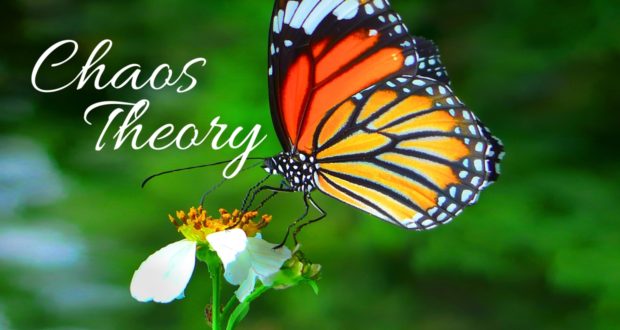 At this time every year in America, most of us are required to attend at least one graduation ceremony. And commencement addresses seem intent on informing students that they will somehow stand out in the world—or even (gasp) to “change the world.”
At this time every year in America, most of us are required to attend at least one graduation ceremony. And commencement addresses seem intent on informing students that they will somehow stand out in the world—or even (gasp) to “change the world.”
Some jaded souls might regard this as absurd—the idea that people can change the world strikes them as well beyond the pale. When it comes to world-changers, they think of kings, great educators, and inventors, never accepting or even considering the fact that the common man might lead a more meaningful life than these people. For my part, I have little doubt that each of these students will change the world. In fact, even butterflies can change the world.
A recent branch of scientific study known as chaos theory has posited a concept referred to as the “Butterfly Effect.” The “butterfly effect” hypothesizes that something as seemingly insignificant as the flap of the wings of a butterfly can cause a hurricane thousands of miles away. That can be a pretty depressing thought—the idea that this colorful little insect seems to be just minding its own business, yet could be causing so much global turmoil.
Of course, I don’t want to be the guy who forever influences your enjoyment of butterflies, so I want to consider its inverse: by the same logic, the flap of a butterfly’s wings could prevent a hurricane as well. So the next time you see a butterfly leisurely making its way across your garden, consider that God may have created that little guy not only to brighten your day, but to save countless lives.
Chaos theory is a concept that reminds me of an idea that Catholic theology has long taught: namely, that all action has consequences. For instance, a single sin can cause a ripple effect throughout the world, damaging many people in its wake. But our actions can have immeasurably positive effects as well. Consider the following.
One small sacrifice for the souls in Purgatory can help many souls immediately enter into the glory of Heaven.
The human mind has found it impossible to grasp the benefit of a single recitation of the Holy Rosary.
One worthy reception of the Eucharist has an incomprehensibly beneficial impact on everyone and everything on earth.
Even if the assertions of chaos theory are completely accurate, and butterflies do have that kind of effect, here’s another irrefutable: we are certainly meant to have a greater impact than butterflies.
The truth is that all of us are changing the world. The question is how are we changing it? That part of the equation is up to us. We should recognize a reality: as little as our actions seem, everyone we come in contact with every day will have a better or worse day because of us.
St. Therese offered us the advice that it is the small things in life that make a difference—those things that are remarkably unexceptional. And yet, her “Little Way” was never really little at all. It was towering, magnificent, and majestic. It was beautiful. We need to pay more attention to these “little things” every day of our lives.
No, we don’t flap our wings.
We do more important things—things with impact.
We smile.
We understand.
We give.
We hug.
We help.
We pray for the suffering.
We thank God.
We utter a kind word to a stranger.
We comfort others.
We buy lunch for a friend.
We read to our children.
We sacrifice for others.
We listen to a friend who’s having a tough day.
We listen to the dreams of others, and dream with them.
We let others know we believe in them.
We show our love for our spouse.
We thank someone.
We forgive someone.
We forgive everyone.
We love everyone.
We should stop considering that changing the world is impossible. It’s harder not to change the world. But while the world offers us “chaos theory,” we need to offer the world “beauty theory.” We are Christians, after all, and ours are not the things of chaos. Ours are the things of God.

 Seton Magazine Catholic Homeschool Articles, Advice & Resources
Seton Magazine Catholic Homeschool Articles, Advice & Resources
